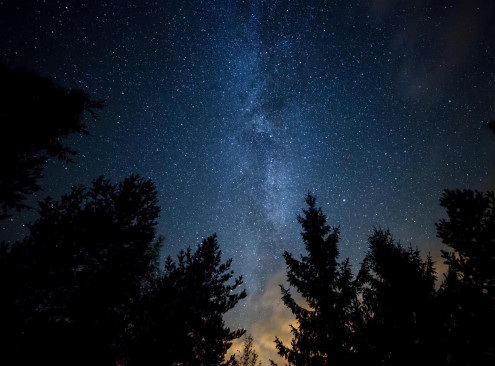© Pint of Science, 2026. All rights reserved.
Our speakers will take you on a journey into the cosmos, past the hidden music of our planets, and to the origin of the Universe itself.
A journey through the magnetic Universe
Jennifer Schober
(Group leader at EPFL)
Gravity is the main force shaping our Universe. But there is another, hidden, yet significant, force in space: magnetic fields. They are present everywhere we look. Join me on a journey through the magnetic Universe, starting from our own Earth and the Sun to the vast interstellar space and entire galaxies. Along the way, I'll share insights into how magnetic fields might be generated, though much remains unknown. Understanding cosmic magnetic fields is a key area of modern astrophysics research since they influence galaxy evolution, regulate the formation of stars, control solar activity, and shield humanity from harmful space radiation.
The future journey to go back in time
Veronica Sacchi
(PhD student at EPFL)
An amazing insight we can gain by just raising our eyes and looking at the sky is that the universe today is expanding, and recent measurement apparently confirm this expansion even accelerates. But we think this is not the first time something like this happens to the cosmos: we will take a brief journey to its far beginning, discovering how the smallest (quantum) fluctuations may be at the origin of everything we observe today, from the largest structures to our own existence.

Gaia: a discovery mission of the European Space Agency
Laurent Eyer
(Researcher at University of Geneva)
The Gaia project, a cornerstone mission of the European Space Agency (ESA), undertakes a comprehensive multi-epoch survey of over 2 billion celestial sources, including stars within the Milky Way and beyond, asteroids, quasars, and galaxies. The data processing and analysis present challenges of the highest order, undertaken by more than 450 astronomers and computer scientists. This mission has already led to many remarkable discoveries, of which I will mention only a few topics. These examples offer a glimpse into the formidable scientific, technical, and human challenge that Gaia represents.
Map data © OpenStreetMap contributors.